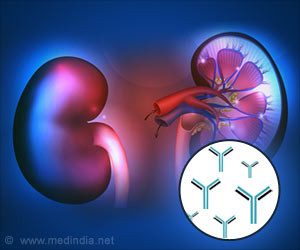Hormonal therapy for the person experiencing discomfort when their assigned gender does not match their gender identity could increase the risk of serious heart problems.

Gender Dysphoria: Biological Sex vs. Gender Identity
Gender dysphoria occurs when a person’s gender identity conflicts with the sex they were assigned at birth. Gender affirmation therapy includes a variety of medical, psychological, and behavioral interventions to help individuals, many of whom identify as transgender, acquire secondary sex characteristics that align with their gender identity. Recent data suggest about 1 million to 1.6 million people identify as transgender in the U.S. and that hormone therapy use is rising rapidly, especially among teens and young adults. The current study is the largest to date examining the cardiovascular risks of gender affirmation therapy in this historically understudied population.‘Hormone replacement therapy helping people suffering from gender dysphoria has a lot of side effects.’





Previous research on hormone-modulating medications has primarily focused on younger women using hormone-based birth control or on older women following a hysterectomy or during menopause. In these populations, long-term hormone replacement therapy has been associated with an increased risk of breast cancer, stroke, and blood clots. Researchers retrospectively examined rates of cardiovascular events in over 21,000 people with gender dysphoria from a national database of hospital records, of whom 1,675 had used hormone replacement therapy.
People with Gender Dysphoria Face a Higher Risk of Conditions affecting Heart Health
Typically, people assigned male at birth receive estrogen, and people assigned female at birth receive testosterone. Overall results found hormone replacements were associated with higher rates of cardiac events, mostly related to dangerous blood clots, but were not associated with higher rates of death.In the study, people with gender dysphoria who had ever used hormone replacements saw nearly seven times the risk of ischemic stroke (a blockage in a vessel supplying blood to the brain), nearly six times the risk of myocardial infarction (the most serious type of heart attack) and nearly five times the risk of pulmonary embolism (a blockage in an artery in the lung), compared with people with gender dysphoria who had never used hormone replacements.
Hormone replacement therapy was not associated with any increase in deaths from any cause or with increased rates of atrial fibrillation, diabetes, hypertension, hemorrhagic stroke, or heart failure.
Advertisement
Looking at a person’s medical and family history should be part of the screening protocol before they even start hormone replacement therapy. It is also important that people considering this therapy are made aware of all the risks.
In addition to considering ways to mitigate potential cardiovascular risks before starting hormone replacement therapy for individual patients, researchers said it will be important to continue to study potential long-term cardiovascular and other health effects of gender affirmation therapies as the use of these therapies become more common.
Source-Eurekalert














